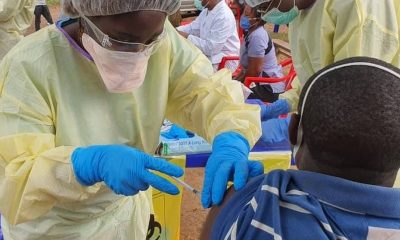Health
How Nigeria Beat Ebola
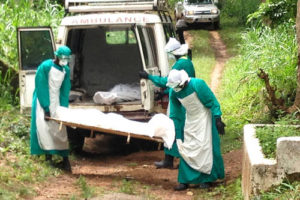
Nigeria has been Ebola-free since it narrowly avoided being sucked into the escalation of the highly contagious haemorrhagic fever outbreak which devastated its neighbours, Guinea, Liberia and Sierra Leone resulting in the loss of over 11,000 lives.
WHO has commended the Nigerian Government for its strong leadership and effective coordination of the response that included the rapid establishment of an Emergency Operations Centre headed by Dr Faisal Shuaib, an advisor to the Minister for Health, who was at the centre of the country’s efforts to eradicate polio.
Dr Shuaib said: “The Government’s quick action and deployment of the necessary resources was key to averting a disaster. The circumstances were hugely challenging but we hit the ground running and there was good collaboration across all sectors involved. We were also fortunate in that Nigeria has a first rate virology laboratory affiliated with the Lagos University Teaching Hospital.”
The West Africa Ebola outbreak was the worst since the virus was first identified in 1976, and influenced the drafting of the Sendai Framework for Disaster Risk Reduction which emphasizes the need to enhance the resilience of national health systems and to integrate disaster risk management into health care.
Poverty, lack of preparedness and risk information, combined with inadequate health resources, made West Africa especially vulnerable, driving up exposure and fuelling the spread of the virus from March 2014 to January 2016 when WHO declared Liberia to be Ebola-free.
There was major alarm when the first case was reported in the sprawling Nigerian capital Lagos in July 2014, home to over 20 million people.
A diplomat who had been caring for a relative who died of Ebola in Liberia, and was already ill with the fever, managed to board a commercial fight to Lagos with the intention of visiting a faith healer.
He was admitted to a private hospital where he had to be physically restrained by a brave female doctor as he tried to flee the isolation unit. Both he and the doctor died. Matters were further complicated when another case was identified in the bustling oil centre of Port Harcourt.
Dr Margaret Lamunu, a veteran of WHO’s work on disease control in humanitarian crises, saw her family once during the 15 months she worked on the Ebola crisis. She was re-deployed from Sierra Leone to support the response in Nigeria when the news broke of the first case.
Commenting on the experience, Dr Lamunu said: “There was a huge difference in response capacity in Nigeria and what was possible in Guinea, Sierra Leone and Liberia where you can almost count the numbers of doctors on one hand.
“In Nigeria we had people with Masters degrees doing the tracing work and there was no shortage of qualified medical personnel and lab facilities. All the resources necessary were mobilised quickly. The national Government, the public, partners, and the global community were concerned about it getting out of control.
“There was great detective work in tracking down hundreds of contacts and the Nigerian Federal Ministry of Health, CDC (US Centre for Disease Control and Prevention), Médecins Sans Frontières, the Nigerian Red Cross and many other partners deserve much credit for how they managed to contain the risk of a major health disaster.”
A total of 894 contacts were linked directly to the original case. A further 526 contacts were linked to a health care worker who died in Port Harcourt. Altogether 18,500 face-to-face visits were carried out to check for fever and other symptoms. The high rate of literacy in the general population made it easier to carry out information campaigns by comparison with Guinea, Sierra Leone and Liberia.
By the time Nigeria was declared Ebola-free in October 2014, there were 19 infected individuals in addition to the index case from Liberia, 7 of whom died. These included eleven health care workers, 5 of whom paid the ultimate price for their courageous and successful efforts at containing the epidemic.
Dr Chadia Wannous, UNISDR health focal point, noted: “The experience of Nigeria when contrasted with that of other affected countries underlines how important it is to enhance the capacity of low-income developing countries to manage not just emergencies and disasters but the underlying risks. This requires resilient health systems with trained personnel, risk information and risk communication systems, logistics and supply chain structures, financing mechanisms and solid health governance as we have seen in Nigeria.”
She also highlighted the significant role played by the community, with teams of “social mobilizers” reaching thousands of households with health information and facilitating understanding so that fear and mistrust do not hinder mounting an effective response.
UNISDR is currently collaborating with WHO, UNDP and other partners to implement a project in Ebola-affected Sierra Leone, Liberia and Guinea to “accelerate the implementation of the Sendai Framework with risk-informed health systems”.
The project, funded by the government of Japan, aims to enhance collaboration between disaster risk management and health authorities and integrate health into disaster risk management structures and at the same time integrate risk management into the health sector. By doing so, it is expected that the project will further contribute to reducing mortality due to health emergencies and other types of disasters.
Reducing global disaster mortality is the theme of this year’s International Day for Disaster Reduction, October 13.
Health
Polaris Bank Sponsors Free Breast, Prostate Cancer Screenings
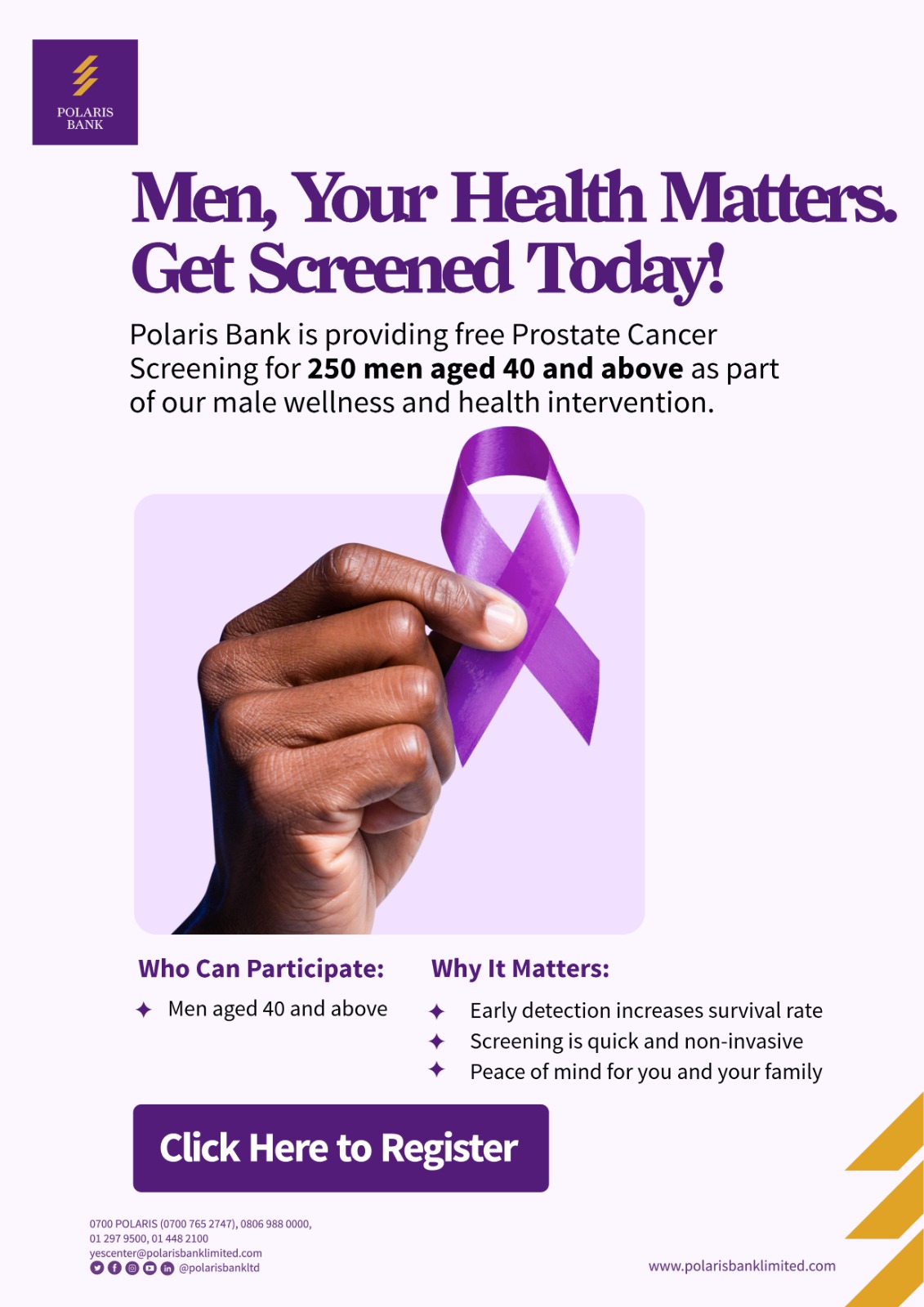
By Modupe Gbadeyanka
To commemorate World Cancer Day observed on Wednesday, February 4, 2026, Polaris Bank Limited is bankrolling free screenings for breast and prostate cancers across the country.
The financial institution partnered with a non-governmental organization (NGO) known as Care Organization and Public Enlightenment (COPE) for this initiative.
At least 100 women would be screened during the exercise, scheduled for Saturday, February 21, 2026, at the C.O.P.E Centre on 39B, Adeniyi Jones Avenue, Ikeja, Lagos, from 10:00 am to 2:00 pm.
The exercise will be conducted by trained health professionals and volunteers, ensuring participants receive both screening services and educational guidance on cancer prevention, self-examination, and follow-up care.
To participate in the free breast cancer screening programme, the applicants must be women, must be Polaris Bank account holders, and must have registered ahead of the day via bit.ly/BCS2026, with selection based on early and confirmed submissions.
Polaris Bank said the initiative was designed to promote awareness, screening, early detection, and preventive care, reinforcing its belief that access to health services is a critical foundation for individual and economic well-being.
The organization is already supporting an on-going free prostate cancer screening programme for 250 men aged 40 years and above across Nigeria.
The prostate cancer screening is being conducted at the Men’s Clinic, situated at 18, Commercial Avenue, Sabo, Yaba, Lagos, providing accessible, professional medical support for male participants seeking early detection and preventive care for prostate cancer.
Both initiatives (free breast and prostate cancer screenings) directly aligns with the United Nations Sustainable Development Goals, particularly SDG 3 (Good Health and Well-being) through improved access to preventive healthcare and early detection services, SDG 5 (Gender Equality) by prioritizing women’s health and empowerment, and SDG 17 (Partnerships for the Goals) through strategic collaboration with civil society organizations such as C.O.P.E to deliver community-centered impact.
Educational materials, community engagement sessions, and digital awareness campaigns will be deployed to reinforce key messages around early detection, lifestyle choices, and the importance of regular medical check-ups.
The Head of Brand Management and Corporate Communications for Polaris Bank, Mr Rasheed Bolarinwa, emphasised that early detection remains one of the most effective tools in the fight against cancer.
Health
NSIA Gets IFC’s Naira-financing to Scale Oncology, Diagnostic Services
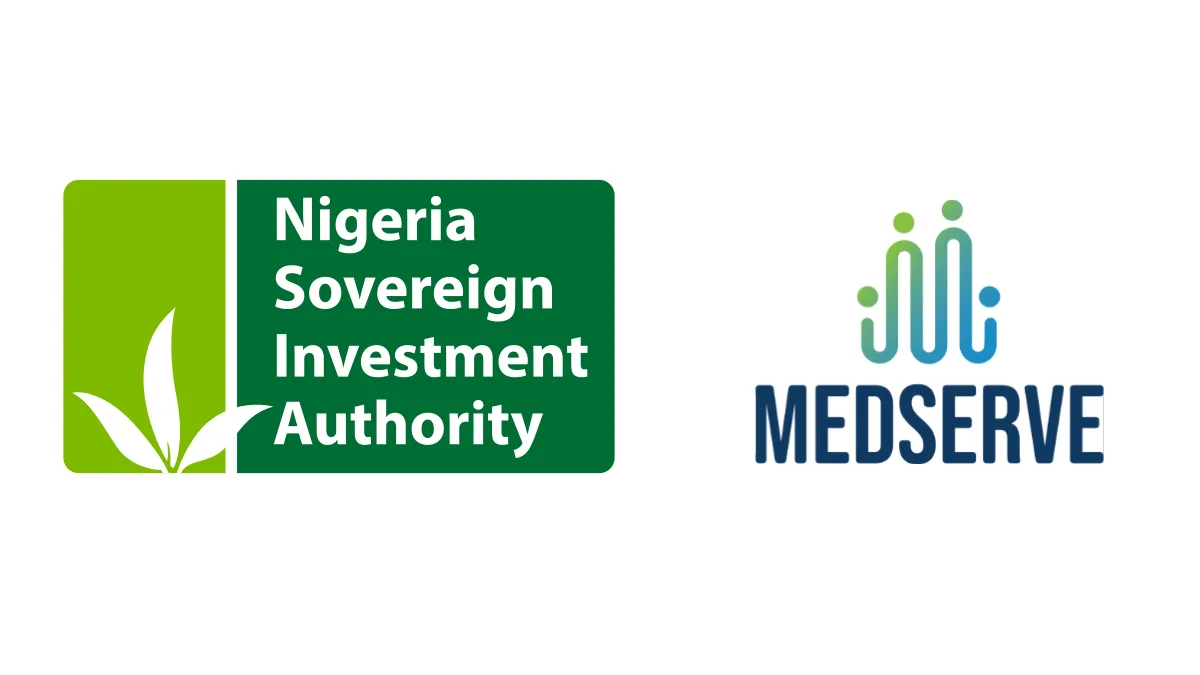
By Adedapo Adesanya
International Finance Corporation (IFC), a subsidiary of the World Bank, and the Nigeria Sovereign Investment Authority (NSIA) have partnered to provide Naira-denominated financing to NSIA Advanced Medical Services Limited (MedServe), a wholly owned healthcare subsidiary of the country’s wealth fund.
Supported by the International Development Association’s Private Sector Window Local Currency Facility, this financing enables MedServe to scale critical healthcare infrastructure while mitigating foreign exchange risks. IFC is a member of the World Bank Group.
The funds will support MedServe’s expansion program to establish diagnostic centers, radiotherapy-enabled cancer care facilities, and cardiac catheterisation laboratories across several Nigerian states.
These centres will feature advanced medical technologies, including CT and MRI imaging, digital pathology labs, linear accelerators, and cardiac catheterisation equipment, thereby enhancing specialised diagnostics and treatment.
MedServe provides sustainable service delivery with pricing that matches local income levels, helping ensure broader access to affordable oncology care for low-income patients.
The initiative will deliver over a dozen modern diagnostic and treatment centers across Nigeria, create 800 direct jobs, and train more than 500 healthcare professionals in oncology and cardiology specialties.
The total project size is $154.1 million, with IFC contributing roughly N14.2 billion ($24.5 million) in long-tenor local currency financing, marking IFC’s first healthcare investment in Nigeria using this structure.
This comes as Nigeria advances its aspirations for Universal Health Coverage. This partnership provides an opportunity to leverage private investment to complement government efforts to expand oncology care and diagnostic services.
IFC’s provision of long-tenor Naira financing addresses a significant market gap and unlocks institutional capital for healthcare infrastructure with strong development upside while MedServe’s co-location strategy with public hospitals maximises capital efficiency and strengthens the public-private ecosystem, establishing a replicable platform for future investment.
“This partnership with IFC represents a significant milestone in NSIA’s commitment to strengthening Nigeria’s healthcare ecosystem through sustainable, locally anchored investment solutions,” said Mr Aminu Umar-Sadiq, managing director & chief executive of NSIA.
He added, “By deploying long-tenor Naira financing, we are addressing critical infrastructure gaps while reducing foreign exchange risk and ensuring that quality diagnostic and cancer care services are accessible to underserved communities. MedServe’s expansion underscores our belief that commercially viable healthcare investments can deliver strong development impact while supporting national health priorities.”
“This ambition is consistent with our broader vision for Africa, one where resilient health systems and inclusive growth reinforce each other to deliver long-term impact across the continent,” said Mr Ethiopis Tafara, IFC Vice President for Africa.
Health
Lagos Steps up Mandatory Health Insurance Drive
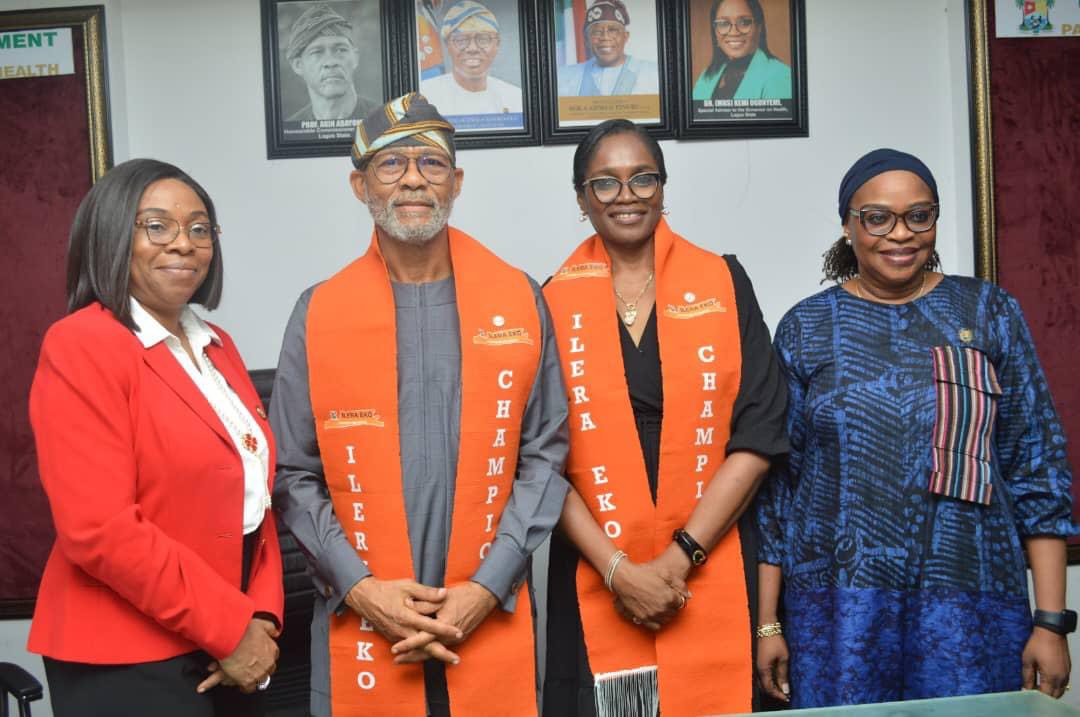
By Modupe Gbadeyanka
Efforts to entrench mandatory health insurance through the Ilera Eko Social Health Insurance Scheme in Lagos State have been stepped by the state government.
This was done with the formal investiture of the Commissioner for Health, Professor Akin Abayomi, and the Special Adviser to the Governor on Health, Mrs Kemi Ogunyemi, as Enforcement Leads of the Lagos State Health Scheme Executive Order and ILERA EKO Champions.
The Commissioner described the recognition as both symbolic and strategic, noting that Lagos is deliberately shifting residents away from out-of-pocket healthcare spending to insurance-based financing.
“We have been battling with how to increase enrolment in ILERA EKO and change the culture of cash payment for healthcare. Insurance is a social safety net, and this mindset shift is non-negotiable,” he said.
He recalled that Lagos became the first state to domesticate the 2022 National Health Insurance Authority (NHIA) Act through an Executive Order issued in July 2024, making health insurance mandatory. He stressed that the decision reflected the Governor’s strong commitment to healthcare financing reform, adding, “When Mr. Governor personally edits and re-edits a document, it shows how critical that issue is to the future of Lagosians.”
Mr Abayomi also warned against stigmatisation of insured patients, describing negative attitudes towards Ilera Eko enrolees as a major barrier to uptake. “If someone presents an Ilera Eko card and is treated as inferior, uptake will suffer. That must stop,” he said, pledging to prioritise insurance compliance during facility inspections. “The key question I will keep asking is: ‘Where is the Ilera Eko?’”
In her remarks, Mrs Ogunyemi, said the enforcement role goes beyond a title, stressing that the health insurance scheme is now law.
“This is about Universal Health Coverage and equitable access to quality healthcare for everyone in Lagos State,” she said, noting that ILERA EKO aligns with the state’s THEMES Plus Agenda.
She commended the Lagos State Health Management Agency (LASHMA) for aggressive sensitisation efforts across the state, saying constant visibility was necessary to address persistent gaps in public knowledge. “People are still asking, ‘What is Ilera Eko?’ ‘Where do I enrol?’ Those questions tell us the work must continue,” she said.
She urged all directors and health officials to mainstream Ilera Eko promotion in every programme and engagement, emphasising that responsibility for health insurance advocacy does not rest with LASHMA alone. “When people come with medical bills, the first question should be: are you insured?” she said, adding that early enrolment remains critical as premiums rise over time.
Earlier, the Permanent Secretary of LASHMA, Ms Emmanuella Zamba, said the investiture marked a critical step in positioning leadership to drive enforcement of the Executive Order across the public service.
“What we are undertaking is pioneering in Nigeria. All eyes are on Lagos as we demonstrate how mandatory health insurance can work,” she said.
Ms Zamba disclosed that enforcement nominees across Ministries, Departments and Agencies have been trained, with a structure in place to ensure compliance beyond the health sector.
According to her, “This initiative cuts across the entire public service, particularly public-facing MDAs, in line with the provisions of the Executive Order.”
She explained that the formal designation of the Commissioner and the Special Adviser as Enforcement Leaders was meant to strengthen compliance, alongside the Head of Service, while also recognising their consistent advocacy for universal health coverage. “This decoration is to amplify their roles and appreciate the leadership they have shown,” she said.
-

 Feature/OPED6 years ago
Feature/OPED6 years agoDavos was Different this year
-
Travel/Tourism9 years ago
Lagos Seals Western Lodge Hotel In Ikorodu
-

 Showbiz3 years ago
Showbiz3 years agoEstranged Lover Releases Videos of Empress Njamah Bathing
-

 Banking8 years ago
Banking8 years agoSort Codes of GTBank Branches in Nigeria
-

 Economy3 years ago
Economy3 years agoSubsidy Removal: CNG at N130 Per Litre Cheaper Than Petrol—IPMAN
-

 Banking3 years ago
Banking3 years agoSort Codes of UBA Branches in Nigeria
-

 Banking3 years ago
Banking3 years agoFirst Bank Announces Planned Downtime
-

 Sports3 years ago
Sports3 years agoHighest Paid Nigerian Footballer – How Much Do Nigerian Footballers Earn




